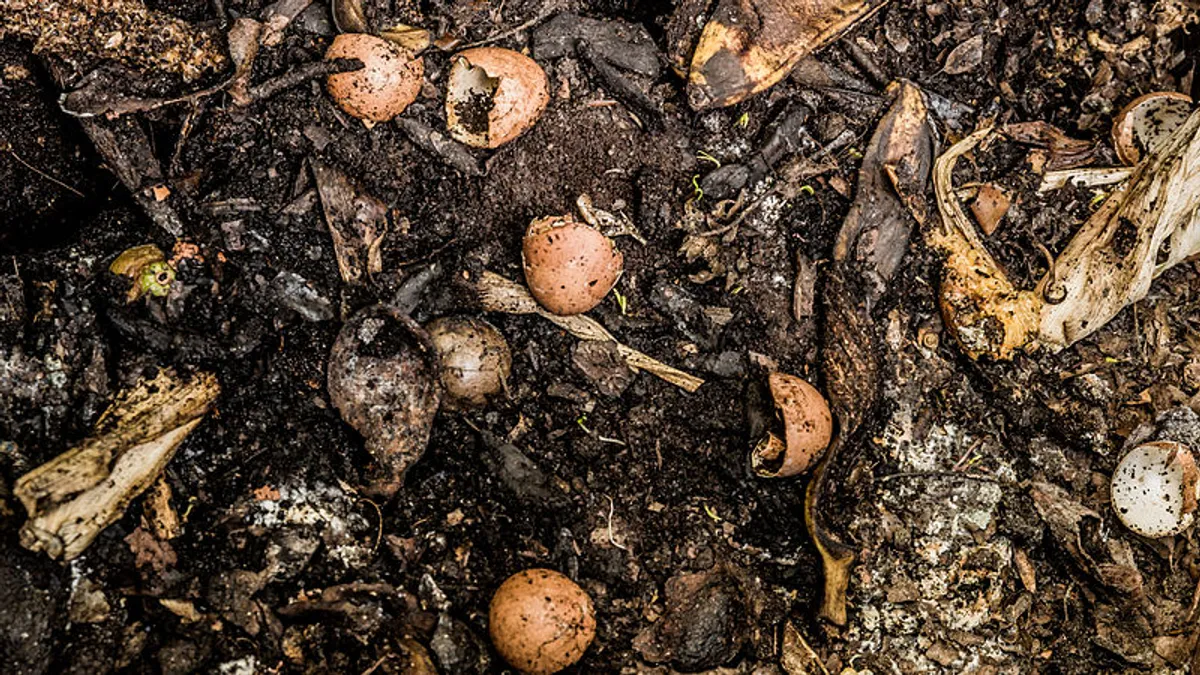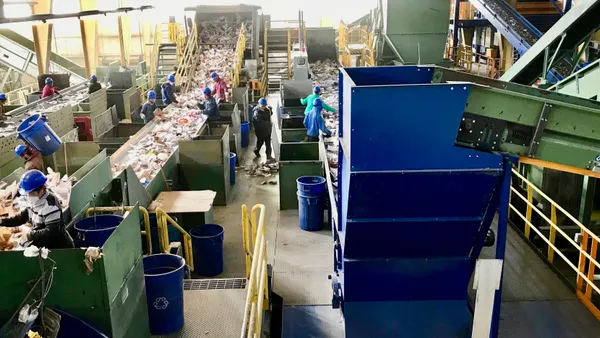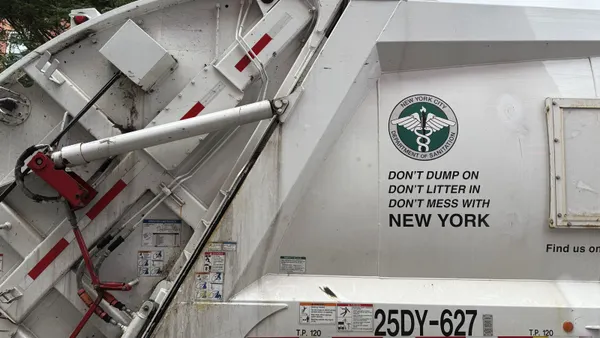Dive Brief:
- New York-based company Industrial/Organic has begun developing a new way to process food waste on a small scale. The system could be replicated in warehouse spaces, similar to a brewery, throughout urban areas, where haulers would pay tipping fees to dispose of organic material.
- The company's accelerated fermentation method creates fertilizer pellets and non-potable water which could be used for irrigation or cleaning. Unlike other composting methods, Industrial/Organic's can process material in under a week and creates minimal odor.
- The five-person team plans to be processing one ton per day in Brooklyn's Red Hook soon and hopes to expand to a 40-ton facility in a year. Newburgh, NY has been selected as a potential location for the first site with further expansion in other cities planned after that.
Dive Insight:
Companies are seeing big potential as New York expands its residential organic collection program and begins requiring large commercial generators to divert their food waste. The city is estimated to produce more than 5,000 tons of food waste per day and Mayor Bill de Blasio's goal to send zero waste to landfills by 2030 will require a major increase in organic processing capacity.
The city is expanding anaerobic digestion operations at its Newtown Creek Wastewater Treatment Plant, and a number of other private facilities are in the works, but regional capacity still hasn't recovered since Delaware's Peninsula Compost facility closed in 2014. SWANA recently identified a need for more national processing capacity as well.
Yet even with all this demand, funding a new technology can be challenging as founder Amanda Prinzo and business partner Brett Van Aalsburg have been trying to launch their concept since 2014. The pair was operating a small prototype in Queens last year, but had trouble getting funding to grow further and even considered moving upstate to Buffalo at one point to acquire more. The project may never have gotten off the ground without $60,000 from the Urban-X startup accelerator. This has allowed them to fund their work in the Red Hook space as they try to raise another $300,000 over the next few months.
Industrial/Organic's technology could be an important addition to urban food waste management options. Building new facilities in cities such as New York is often a challenge due to land scarcity and community opposition. Larger facilities outside of cities are key components of processing capacity, but require material to be transported farther at higher cost. If haulers could dispose of food waste locally and the end-product could be used within city limits, it would be a big step toward achieving a closed loop system.










